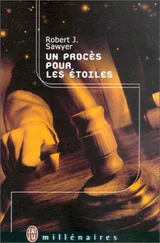Sarah Bolton - Lives of Poor Boys Who Became Famous
Здесь есть возможность читать онлайн «Sarah Bolton - Lives of Poor Boys Who Became Famous» — ознакомительный отрывок электронной книги совершенно бесплатно, а после прочтения отрывка купить полную версию. В некоторых случаях можно слушать аудио, скачать через торрент в формате fb2 и присутствует краткое содержание. ISBN: , Жанр: foreign_prose, foreign_antique, Биографии и Мемуары, foreign_language, на английском языке. Описание произведения, (предисловие) а так же отзывы посетителей доступны на портале библиотеки ЛибКат.
- Название:Lives of Poor Boys Who Became Famous
- Автор:
- Жанр:
- Год:неизвестен
- ISBN:http://www.gutenberg.org/ebooks/35950
- Рейтинг книги:4 / 5. Голосов: 1
-
Избранное:Добавить в избранное
- Отзывы:
-
Ваша оценка:
- 80
- 1
- 2
- 3
- 4
- 5
Lives of Poor Boys Who Became Famous: краткое содержание, описание и аннотация
Предлагаем к чтению аннотацию, описание, краткое содержание или предисловие (зависит от того, что написал сам автор книги «Lives of Poor Boys Who Became Famous»). Если вы не нашли необходимую информацию о книге — напишите в комментариях, мы постараемся отыскать её.
Lives of Poor Boys Who Became Famous — читать онлайн ознакомительный отрывок
Ниже представлен текст книги, разбитый по страницам. Система сохранения места последней прочитанной страницы, позволяет с удобством читать онлайн бесплатно книгу «Lives of Poor Boys Who Became Famous», без необходимости каждый раз заново искать на чём Вы остановились. Поставьте закладку, и сможете в любой момент перейти на страницу, на которой закончили чтение.
Интервал:
Закладка:
"I will."
The next day the stranger said to Mr. Harrison, "I have brought you the very man you want."
The business man eyed Mason closely, saying, "I've had a good many young men come here; but they are afraid of dirtying their fingers."
Mason opened his somewhat calloused hands, and, looking at them, said, "Are you ashamed of dirtying yourselves to get your own living?"
Mason was at once employed, and a year later Mr. Harrison offered him the business at twenty-five hundred dollars. Several men, observing the young man's good qualities, had offered to loan him money when he should go into trade for himself. He bethought him of these friends, and called upon them; but they all began to make excuse. The world's proffers of help or friendship we can usually discount by half. Seeing that not a dollar could be borrowed, Mr. Harrison generously offered to wait for the principal till it could be earned out of the profits. This was a noble act, and Mr. Mason never ceased to be grateful for it.
He soon invented a machine for bevelling hoop-rings, and made five thousand dollars the first year from its use. Thenceforward his life reads like a fairy-tale. One day, seeing some steel pens on a card, in a shop-window, he went in and purchased one for twelve cents. That evening he made three, and enclosed one in a letter to Perry of London, the maker, paying eighteen cents' postage, which now would be only two cents.
His pen was such an improvement that Mr. Perry at once wrote for all he could make. In a few years, Mason became the greatest pen-maker in the world, employing a thousand persons, and turning out over five million pens per week. Sixty tons of pens, containing one and a half million pens to the ton, were often in his shops. What a change from peddling cakes from door to door in Kidderminster!
Later he became the moneyed partner in the great electro-plating trade of the Elkingtons, whose beautiful work at the Centennial Exposition we all remember.
Mr. Mason never forgot his laborers. When he established copper-smelting works in Wales, he built neat cottages for the workmen, and schools for the three hundred and fifty children. The Welsh refused to allow their children to attend school where they would be taught English. Mr. Mason overcame this by distributing hats, bonnets, and other clothing to the pupils, and, once in school, they needed no urging to remain. The manufacturer was as hard a worker as any of his men. For years he was the first person to come to his factory, and the last to leave it. He was quick to decide a matter, and act upon it, and the most rigid economist of time. He allowed nobody to waste his precious hours with idle talk, nor did he waste theirs. He believed, with Shakespeare, that "Talkers are no good doers." His hours were regular. He took much exercise on foot, and lived with great simplicity. He was always cheerful, and had great self-control. Finally he began to ask himself how he could best use his money before he died. He remembered his poor struggling mother in his boyish days. His first gift should be a home for aged women – a noble thought! – his next should be for orphans, as he was a great lover of children. For eight years he watched the beautiful buildings of his Orphanage go up, and then saw the happy children gathered within, bringing many of them from Kidderminster, who were as destitute as himself when a boy. He seemed to know and love each child, for whose benefit he had included even his own lovely home, a million dollars in all. The annual income for the Orphanage is about fifty thousand dollars. What pleasure he must have had as he saw them swinging in the great playgrounds, where he had even thought to make triple columns so that they could the better play hide-and-seek! At eight, he was trudging the streets to earn bread; they should have an easier lot through his generosity.
For this and other noble deeds Queen Victoria made him a knight. What would his poor mother have said to such an honor for her boy, had she been alive!
What would the noble man, now over eighty, do next with his money? He recalled how hard it had been for him to obtain knowledge. The colleges were patronized largely by the rich. He would build a great School of Science, free to all who depended upon themselves for support. They might study mathematics, languages, chemistry, civil engineering, without distinction of sex or race. For five years he watched the elegant brick and stone structure in Birmingham rise from its foundations. And then, Oct. 1, 1880, in the midst of assembled thousands, and in the presence of such men as Fawcett, Bright, and Max Muller, Mason Science College was formally opened. Professor Huxley, R. W. Dale, and others made eloquent addresses. In the evening, a thousand of the best of England gathered at the college, made beautiful by flowers and crimson drapery. On a dais sat the noble giver, in his eighty-sixth year. The silence was impressive as the grand old man arose, handing the key of his college, his million-dollar gift, to the trustees. Surely truth is stranger than fiction! To what honor and renown had come the humble peddler!
On the following 25th of June, Sir Josiah Mason was borne to his grave, in the Erdington mausoleum. Three hundred and fifty orphan-children followed his coffin, which was carried by eight servants or workingmen, as he had requested. After the children had sung a hymn, they covered the coffin-lid with flowers, which he so dearly loved. He sleeps in the midst of his gifts, one of England's noble benefactors.
BERNARD PALISSY
In the Louvre in Paris, preserved among almost priceless gems, are several pieces of exquisite pottery called Palissy ware. Thousands examine them every year, yet but few know the struggles of the man who made such beautiful works of art.
Born in the south of France in 1509, in a poor, plain home, Bernard Palissy grew to boyhood, sunny-hearted and hopeful, learning the trade of painting on glass from his father. He had an ardent love for nature, and sketched rocks, birds, and flowers with his boyish hands. When he was eighteen, he grew eager to see the world, and, with a tearful good-by from his mother, started out to seek his fortune. For ten years he travelled from town to town, now painting on glass for some rich lord, and now sketching for a peasant family in return for food. Meantime he made notes about vegetation, and the forming of crystals in the mountains of Auvergne, showing that he was an uncommon boy.
Finally, like other young people, he fell in love, and was married at twenty-eight. He could not travel about the country now, so he settled in the little town of Saintes. Then a baby came into their humble home. How could he earn more money, since the poor people about him had no need for painted glass? Every time he tried to plan some new way to grow richer, his daily needs weighed like a millstone around his neck.
About this time he was shown an elegant enamelled cup from Italy. "What if I could be the first and only maker of such ware in France?" thought he. But he had no knowledge of clay, and no money to visit Italy, where alone the secret could be obtained.
The Italians began making such pottery about the year 1300. Two centuries earlier, the Pagan King of Majorca, in the Mediterranean Sea, was said to keep confined in his dungeons twenty thousand Christians. The Archbishop of Pisa incited his subjects to make war upon such an infidel king, and after a year's struggle, the Pisans took the island, killed the ruler, and brought home his heir, and great booty. Among the spoils were exquisite Moorish plates, which were so greatly admired that they were hung on the walls of Italian churches. At length the people learned to imitate this Majolica ware, which brought very high prices.
The more Palissy thought about this beautiful pottery, the more determined he became to attempt its making. But he was like a man groping in the dark. He had no knowledge of what composed the enamel on the ware; but he purchased some drugs, and ground them to powder. Then he bought earthen pots, broke them in pieces, spread the powder upon the fragments, and put them in a furnace to bake. He could ill afford to build a furnace, or even to buy the earthenware; but he comforted his young wife with the thought that as soon as he had discovered what would produce white enamel they would become rich.
Читать дальшеИнтервал:
Закладка:
Похожие книги на «Lives of Poor Boys Who Became Famous»
Представляем Вашему вниманию похожие книги на «Lives of Poor Boys Who Became Famous» списком для выбора. Мы отобрали схожую по названию и смыслу литературу в надежде предоставить читателям больше вариантов отыскать новые, интересные, ещё непрочитанные произведения.
Обсуждение, отзывы о книге «Lives of Poor Boys Who Became Famous» и просто собственные мнения читателей. Оставьте ваши комментарии, напишите, что Вы думаете о произведении, его смысле или главных героях. Укажите что конкретно понравилось, а что нет, и почему Вы так считаете.












